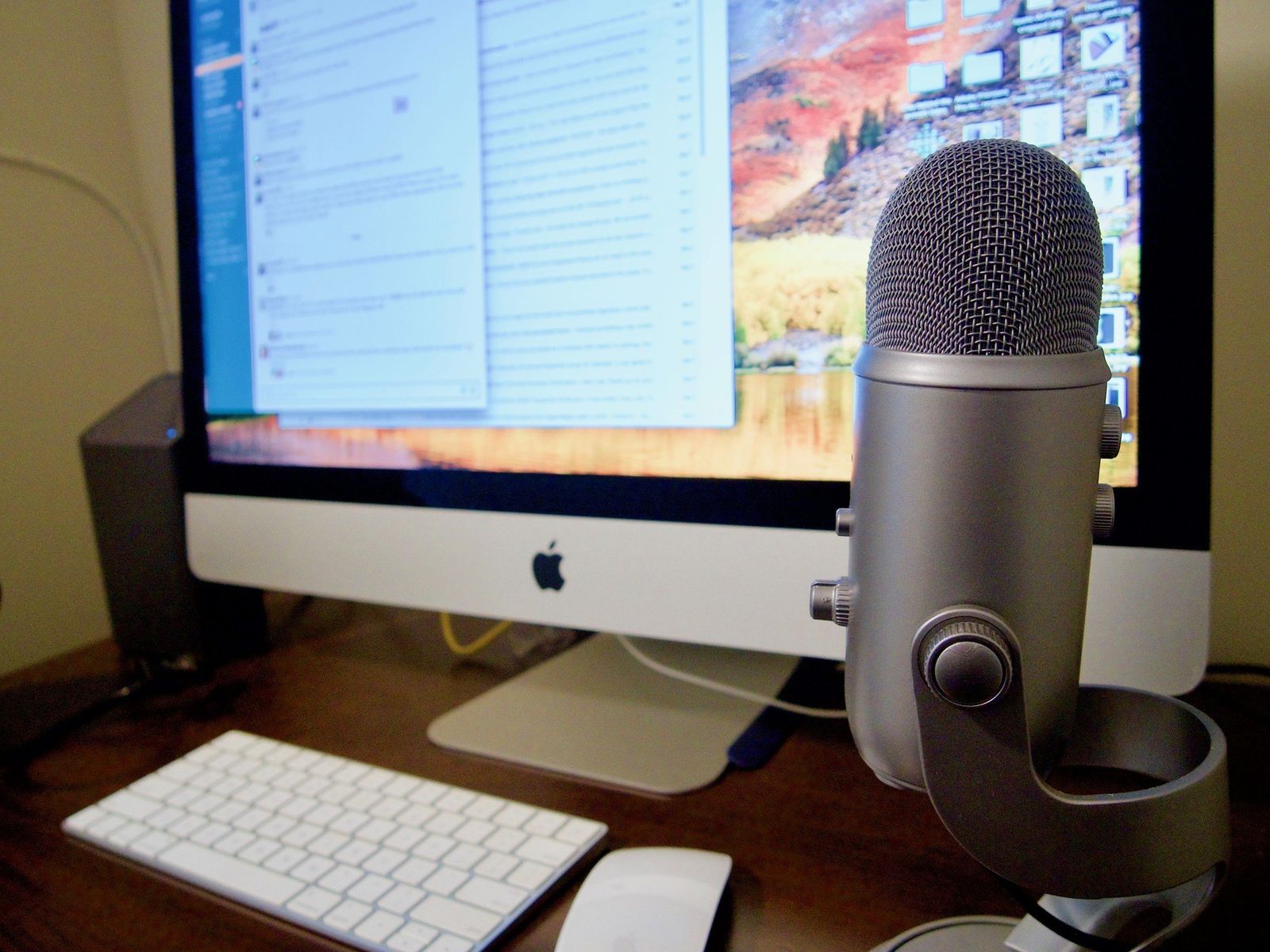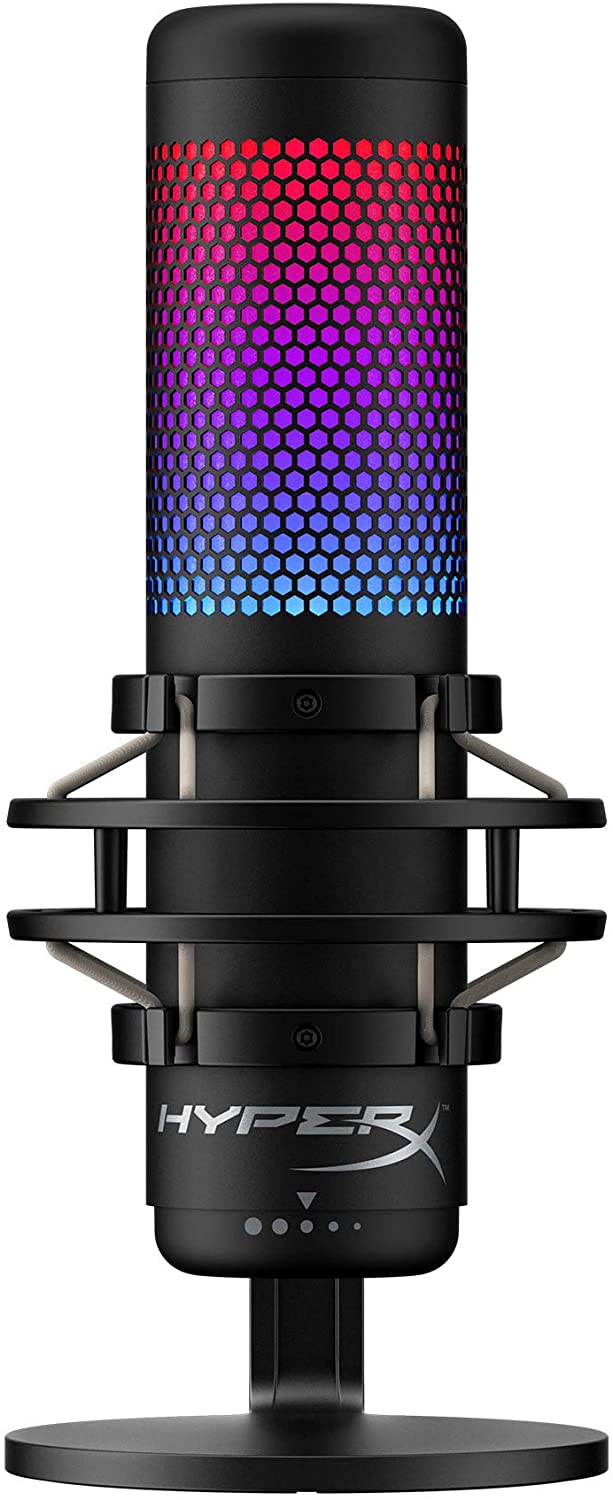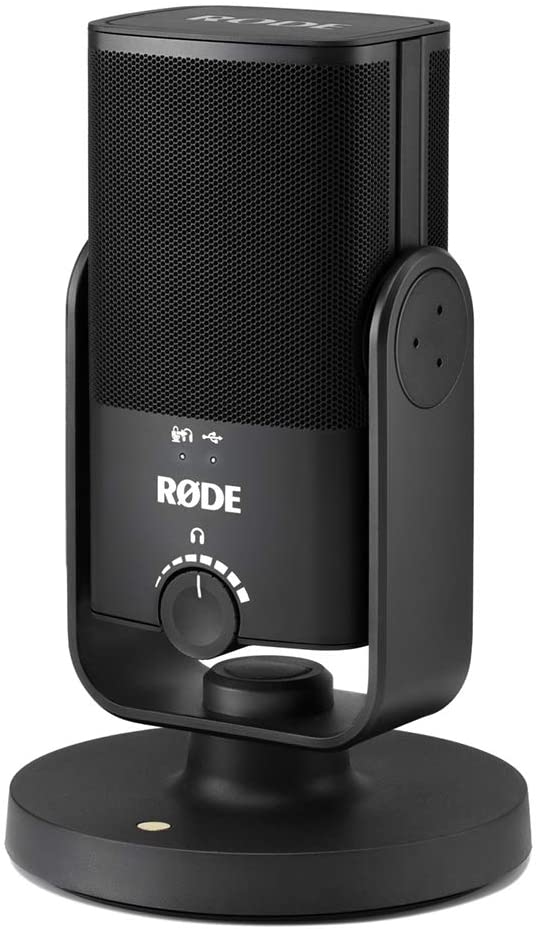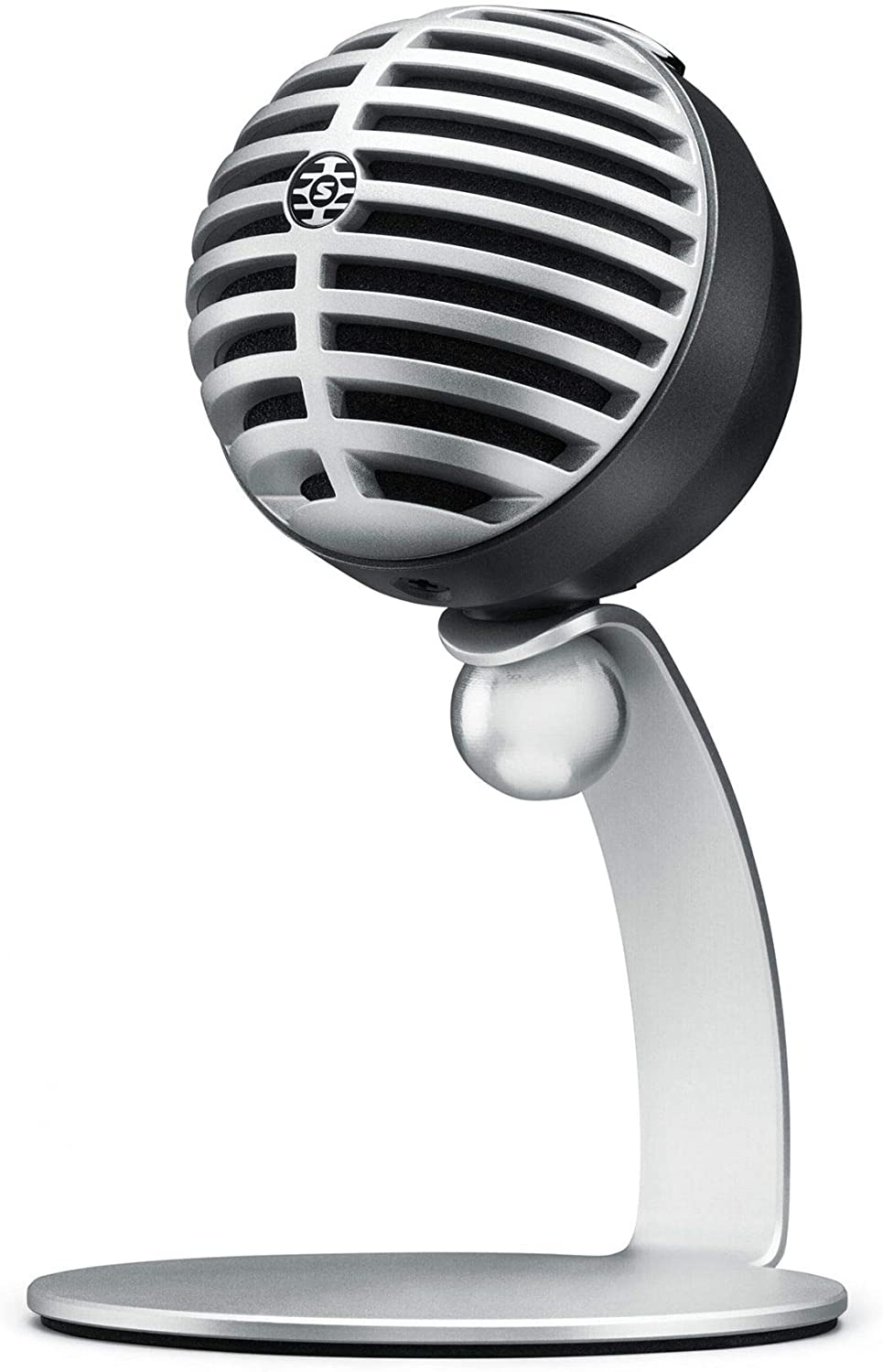How to Use Blue Snowball on Logic Pro X
We may earn a commission for purchases using our links. Learn more.
Buyer's GuideBest USB microphone for Mac 2022
 Source: Luke Filipowicz / iMore
Source: Luke Filipowicz / iMore
Best USB microphone for Mac iMore 2022
Whether you're video chatting with friends and family or signing into a remote work meeting, you can never go wrong with one of the best Mac USB microphones. Just plug one into your Mac, and just like that, you'll sound better and clearer than ever before. The best option when it comes to versatility and convenience is the Blue Yeti. Not only can it record in four different modes, but its 16bit/48kHz recording sample rate always comes out sounding loud and clear.
- Best overall: Blue Yeti USB Mic for Recording & Streaming
- Best upgraded option: HyperX QuadCast S — RGB USB condenser microphone
- Excellent sound isolation: Rode NT-USB Mini — USB microphone with detachable magnetic stand
- Smaller Yeti: Blue Yeti Nano Professional Condenser USB Microphone
- Great for singer/songwriters: Audio-Technica AT2020USB
- Best for iPhone: Shure MV5
- Budget option: Samson Meteor (Chrome)
Best overall: Blue Yeti
 Source: iMore
Source: iMore
The four different recording modes are where the Blue Yeti really shines because there's practically nothing you can't record with the Blue Yeti if it's set in the right mode. If you have a new MacBook that only has USB-C ports, you will need one of the best USB-C Hubs for MacBook Pro to plug it in. Once you do, you won't be disappointed.
I'm not the only one that loves the Blue Yeti, Rene Ritchie has been using his for years, and he loves how easy the Blue Yeti is to use.
"Blue Yeti is still my pick for best USB microphone — not just for the Mac but for anyone starting out doing anything, including podcasts, audiobooks, live streams, videos, and more. It plugs right into your device, no audio interface needed, sounds great out of the box, and has a few simple options if you need to adjust for particular circumstances, like two people sharing one mic. Of course, it can't beat a high-end XLR mic and interface, but at a tenth or less the price, it sounds so good you'll probably think twice, hard, before considering those higher-end purchases. It's the mic I used for years, still, travel with today, and always recommend to anyone who asks." — Rene Ritchie, 10-year podcast veteran and former host of iMore show, MacBreak Weekly, and VECTOR.
Its basic cardioid mode is fantastic for capturing a single voice or instrument in front of the mic, making it perfect for game streaming, video calls, or vocals.
The omnidirectional mode allows the Blue Yeti to pick up sounds from all around it, meaning you can put it in the middle of a table and have multiple people speaking, and it won't miss a single word. This mode is great for podcasting with multiple hosts and guests or for capturing the noise around you.
Bidirectional mode allows the Blue Yeti to be an interview microphone with minimal setup. Just put the microphone between you and the other person speaking and never touch it again.
Lastly, stereo recording mode allows the Blue Yeti to use the left and right channels to record in stereo and give your recordings a more realistic soundstage when there is more than one sound source in front of the microphone.
Pros:
- Headphone jack for live monitoring
- Manually gain adjustment
- Four record modes
- Great price
Cons:
- Micro-USB needed
- You'll want a pop filter
Best overall

Blue Yeti USB Mic for Recording & Streaming
Most features for the best price
With four recording modes, plug-and-play functionality, and live monitoring, the Blue Yeti offers the most versatile experience for the best price.
Best upgraded option: HyperX QuadCast S
 Source: Luke Filipowicz / iMore
Source: Luke Filipowicz / iMore
While the Blue Yeti may still take the top spot on our list because of its price, the HyperX QuadCast S, which we've personally reviewed, is a close runner-up.
This microphone has handled everything I have thrown at it and has always left me impressed. Although it's primarily billed as a gaming microphone, I recorded podcasts, took video calls, laid down some acoustic guitar and basic vocals using the HyperX QuadCast S, and all of that sounded stellar.
The microphone records 48kHz/16-bit audio and has three 14mm condensers, which provides enough data for post-production if you want to go that route. You can certainly pop this microphone down in front of yourself and tune your voice in lots of different ways in your favorite audio mixing program of your choice. Even though I'm not a talented audio engineer or musician, I was able to lay down a pretty simple acoustic guitar track and then record some vocals and come out with a mix that sounded pretty good. Of course, hardcore musicians are definitely not using a USB microphone to record, but it certainly works for very basic music recording in a pinch.
As much as I have become enamored with this microphone, the QuadCast S has one glaring issue that might be a big deal to you. HyperX's software to control the microphone called Ngenuity is not available on Mac. This means that you can't customize the RGB lighting when using the QuadCast S with your Mac, so you're stuck with the rotating rainbow pattern.
Lastly, the stylish RGB lighting and the built-in pop filter are nice extra touches that help make the HyperX QuadCast S a real contender.
If you're split between this one and our previous pick, the Blue Yeti, see how they match up head to head.
Pros:
- Headphone jack for live monitoring
- Manually gain adjustment
- Four record modes
- RGB lighting
- built-in pop filter
Cons:
- Not all features are available on Mac
- A bit more expensive
Best upgraded option

HyperX QuadCast S — RGB USB condenser microphone
Stylish upgrade
Even though the Mac can't use all the features due to software limitations, the stylish look and beautifully clear audio recording make the HyperX QuadCast S is a solid USB microphone for Mac users.
Excellent sound isolation: Rode NT-USB Mini
 Source: Rode
Source: Rode
Rode has been an excellent producer of microphones for years now, and although the Rode NT-USB Mini may look unassuming, it's a handy little USB microphone. The Rode NT-USB Mini is a great compact option for recording voices with a magnetic stand that can easily attach to mic stands, an AUX input for live monitoring, and a built-in pop filter.
The 24-bit at 48Khz sample rate offers excellent audio quality, and the sound isolation that the unidirectional microphone gets out of such a small device is pretty impressive.
Pros:
- Compact design
- USB-C powered
- Built-in pop filter
Cons:
- Only one recording pattern
Excellent sound isolation

Rode NT-USB Mini — USB microphone with detachable magnetic stand
Perfect for staying mobile
USB-C powered and a compact design make this an excellent microphone for a Macbook user.
Smaller Yeti: Blue Yeti Nano
 Source: Blue Microphones
Source: Blue Microphones
Blue's newest USB microphone takes a lot of what people love about the Blue Yeti and shrinks it down (both in size and price) into a pretty compelling product. Both its cardioid and omnidirectional pickup patterns support sample rates up to 24-bit at 48Khz, and its included stand keeps it stable while recording so you don't get any noise from the microphone moving around.
Pros:
- Compact
- Less expensive than Yeti
- Plug-and-play
Cons:
- No manual gain control
- Only two recording patterns
Smaller Yeti

Blue Yeti Nano Professional Condenser USB Microphone
A compact microphone that still offers a lot.
The cardioid and omnidirectional pickup patterns support sample rates up to 24-bit at 48Khz, which is slightly better than its larger version.
Great for singer/songwriters: Audio-Technica AT2020 USB
 Source: Audio-Technica
Source: Audio-Technica
Functioning much like a traditional XLR microphone, the Audio-Technica AT2020 USB is ideal for the singer/songwriter in you who loves to record digitally. Being a cardioid microphone, the AT2020 USB performs best when recording sound from a single source located in front of the microphone. What makes the AT2020 USB so great for musicians is its ability to easily fit into shock mounts and mic booms, allowing you to position the microphone perfectly in your space.
Pros:
- Shock mount compatible
- Live monitoring with the headphone jack
- Plug-and-play
Cons:
- No gain control
- Flimsy stand
Great for singer/songwriters

Audio-Technica AT2020USB
Perfect for instruments and vocals
The 16bit/48kHz recording sample rate and ability to fit in most shock mounts and mic stands make it perfect for recording all sorts of instruments and vocals.
Best for iPhone: Shure MV5
 Source: Shure
Source: Shure
This mic comes with connections for both USB and Lightning ports, however, it is Apple MFi certified, which means it's designed to directly connect to iOS devices like your iPad or iPhone. It won't need any special adapters or connection kits to make it work. So if you're looking for a super-fast way to record your voice and dictate some notes on your iPhone, this is a great way to do it.
Of course, just because it's designed to work well with iOS devices doesn't mean it won't work well with others. It can connect via USB and do all the same jobs with access to all the same features. Use this mic for vlogging, streaming, or just collecting your thoughts for whatever project you happen to be working on.
The MV5 comes with three digital signal processing modes for vocals, instruments, or flat recording. That makes it great for recording music in addition to your own vocals. It also automatically applies certain things like gain, EQ, and compression to get you optimal results out the gate, and you'll find you can really get the sound exactly the way you want it every time. There's even built-in headphones output for real-time monitoring. The mic's custom-tuned capsule provides the best audio.
Pros:
- Compatible with iPhone and Mac
- Sturdy Design
- Plug-and-play
Best for iPhone

Shure MV5
For iPhone and Mac
Whether you're recording on your iPhone or your Mac, the Shure MV5 will provide a fantastic experience.
Budget option: Samson Meteor
 Source: Samson
Source: Samson
Although the Meteor is only meant to capture a single sound source, it does record all of its audio at a 16-bit, 48kHz sample rate, which means you're getting great-sounding audio every time you sit in front of it. It's lightweight and quite compact, allowing you to transport the Meteor anywhere you need to go, so you never have to worry about sounding bad when you're on the road. It's probably the best Mac USB microphone for people who are constantly on the go because it's so incredibly portable.
Pros:
- Super compact and portable
- Plug-and-play
- Inexpensive
Cons:
- Poor sound isolation
- Only one recording pattern
Budget option

Samson Meteor (Chrome)
Perfectly portable to take anywhere
It's small and easy to carry around, meaning you can always bring it anywhere with your MacBook, and its price can't be beat.
Speak up!
Overall, the Blue Yeti is the best Mac USB microphone for most people. Its four recording modes offer an incredible amount of versatility, meaning regardless of what you're trying to record, you should be able to get a high-quality recording.
I have personally used my Blue Yeti to record podcasts with multiple guests, record guitar and vocals on a musical track, and for everyday use during multiple Skype and other video chat services, and I have never been disappointed. Plus, the Blue Yeti is one of the easiest ways to make you sound as good as possible on the Google Hangouts group calls you'll hop on for work.
Credits — The team that worked on this guide
![]()
Luke Filipowicz is an iMore staff writer who has been using microphones to record podcasts and even his band on his Mac.
![]()
Lory Gil is the Former Managing Editor of iMore and knows her way around a microphone, as she records multiple podcasts every week.
![]()
Rene Ritchie is the Former editor-in-chief of iMore and has insider knowledge about the goings-on at the biggest tech company in the world, Apple. He uses microphones with his Mac every day to record videos, interviews, podcasts, and much more!
We may earn a commission for purchases using our links. Learn more.
Source: https://www.imore.com/best-usb-microphones-mac
0 Response to "How to Use Blue Snowball on Logic Pro X"
Post a Comment